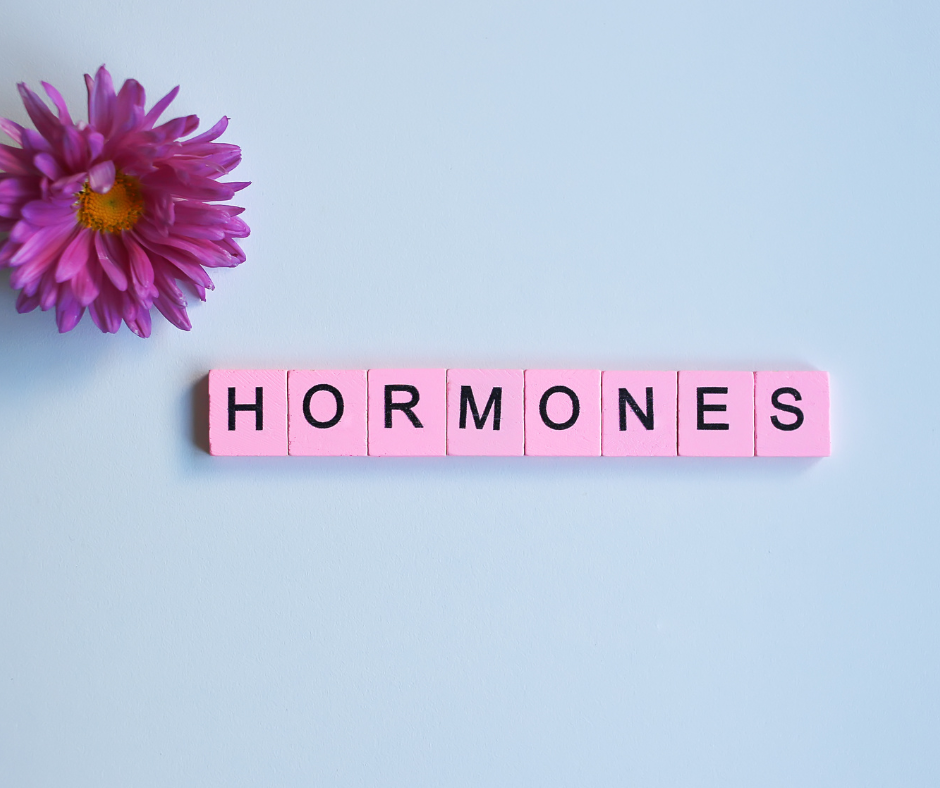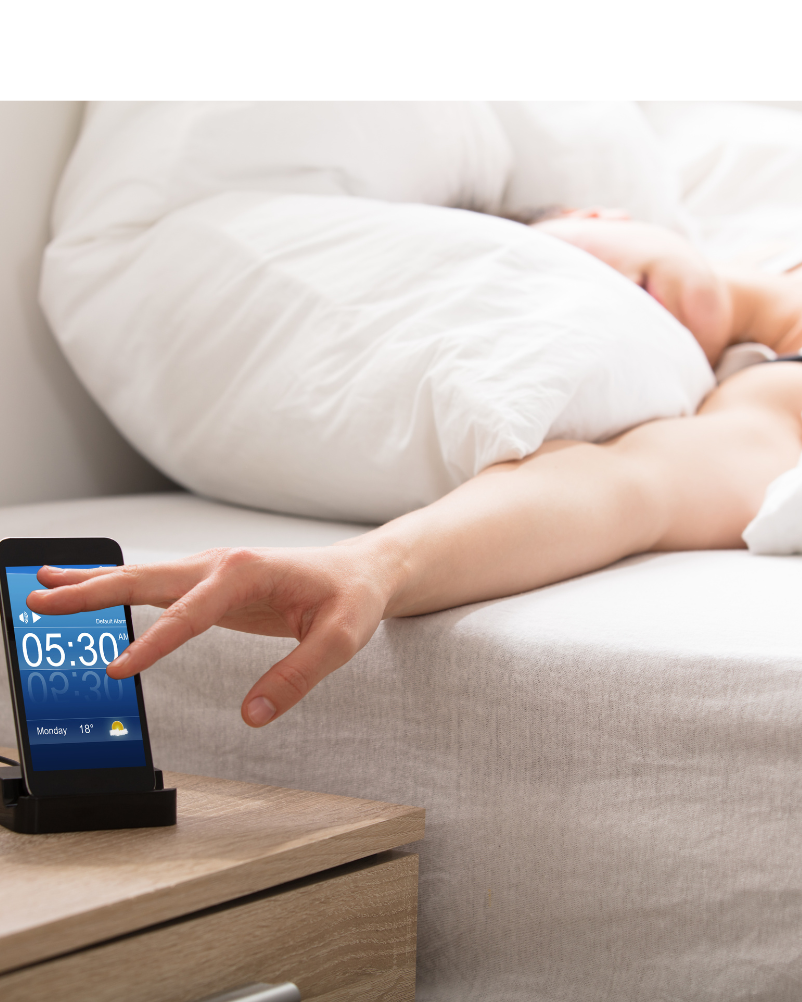
If you’re reading this, chances are that you’ve had a restless night. You might not remember what it was like to wake up refreshed and ready to face the day. You might be having trouble staying awake in meetings or conversations with friends. I know what it’s like to be tired all the time, too!
Suppose you’ve also been going through menopause and are experiencing symptoms associated with this life stage, such as hot flashes, mood swings, and depression. In that case, it may affect your sleep cycle because these two situations can feed into each other, creating an endless loop of bad dreams. Luckily there are things we can do about our sleep issues, including lifestyle changes (like exercise), dietary modifications (such as avoiding caffeine at night), and making sure our bedrooms aren’t full of light pollution or electronics, which act as distractions from sleeping soundly.”

Why does it occur?
Sleep loss during menopause is due to hormonal changes that cause hot flashes. In menopause, hormones like estrogen and progesterone decrease, which means that you produce less melatonin (the hormone that helps regulate your sleep cycle). As a result, you may experience an earlier onset of REM (rapid eye movement) sleep, the stage when most dreams occur. You also have more trouble getting out of bed in the morning because your body had become accustomed to producing less estrogen than it did when you were younger.
This loss of sleep can lead to other problems as well:
- Sleep disturbances are common during menopause as women experience changes in their circadian rhythm and increased wakefulness due to hot flashes or other health issues such as depression or anxiety
- Women often feel fatigued after waking up due to decreased levels of melatonin production
What are the symptoms?
There are many different symptoms of poor sleep, but here are some common ones:
- Difficulty falling asleep
- Difficulty staying asleep throughout the night
- Waking up too early, even when you get enough sleep or want to get up early for work or school
- Waking up feeling tired, groggy, and unrefreshed (even after a full night’s rest)
How is it related to anxiety?
If you suffer from anxiety, you might already know how it can affect your sleep. But if not, here’s what happens:
- Sleep deprivation can cause anxiety and worsen symptoms of existing anxiety disorders. Anxiety can lead to sleep problems and make them worse. A lack of sleep is a vicious cycle that results in ongoing periods of poor restorative sleep despite efforts to improve things.
- People with anxiety disorders typically have difficulty falling asleep at night, waking up throughout the night, or waking up too early in the morning and cannot get back to sleep until much later in their day (this is called “sleep maintenance insomnia”). As a result of these issues, people suffering from an anxiety disorder may often experience daytime fatigue as well as other unpleasant symptoms like headaches and stomachaches.

How can your bedroom environment help?
You may wonder how your bedroom environment can help you get a better night’s sleep. Here are a few tips:
- Make sure the room is dark. As I said, bright lights can suppress melatonin production, so even if you’re not sleeping with your eyes closed, it’s good to be sure that no light sources are visible from where you’re lying down. Since this means turning off all electronics (often bright), consider unplugging them from their charging stations and placing them on the floor or in another room entirely.
- Wear noise-canceling headphones. This one’s super important! If there’s anything more disruptive than having someone snoring next to you while trying to fall asleep, it’s sudden noises—inside or outside your house. These little guys will block most sounds, so only silence enters through their ear canal holes. They’ll also keep the sun at bay if it peeks into your window and wakes up earlier than expected!
What should you do about your routine?
Your choice of sleep routine will depend on the kind of sleeper you are. For example, avoiding caffeine and alcohol at night might be best if you’re a light sleeper. On the other hand, if you’re a deep sleeper, then it might be fine for you to have some caffeine during the day or drink a small amount of alcohol before bedtime.
The next step is establishing your bedtime routine. Some ideas include taking a bath or showering and using lotion, brushing your teeth, reading something relaxing (no news!), listening to calming music or podcasts, and stretching out muscles (essential if they’re prone to cramping). Another idea would be taking an herbal supplement like valerian root, passion flower tea, or melatonin (with vitamin B6). In addition, having sex (if applicable) and snacking on foods high in tryptophan like turkey or cottage cheese (tryptophan is converted into serotonin which helps promote relaxation).
Finally: DO NOT STAY AWAKE! It would help if you went to bed as soon as possible after your ritualistic activities are complete, so there isn’t time for more stimulation than necessary. Once we start getting tired, our bodies release melatonin which makes us sleepy anyway!
Why should you review what you eat?
As you can see, there are many things to consider regarding what you eat and the time of day you eat it. Here are some general rules:
- Eat more vegetables and less sugar
- Avoid caffeine, alcohol, and nicotine
- Avoid eating too close to bedtime (2 hours before is recommended)
- Don’t eat too late at night (2 hours before bedtime is recommended)
- Don’t overeat food in one sitting (leave an hour between meals)
- Avoid eating heavy foods such as meat or total fat dairy products
- Avoid spicy foods that may cause indigestion if consumed late in the evening *
How can you adopt a positive mindset?
You can do a few things to improve your mental state and achieve a positive mindset.
* First, try to think about positive things.
* Second, think about what you are grateful for.
* Third, focus on what you can do to make things better in the future.
* Fourth, consider how far you have come and how your life has progressed over the years.
How can you destress and relax?
- Meditation is a great way to destress and relax. There are plenty of apps that can guide you through meditation, such as Headspace or Calm.
- Stretching is another good way to reduce stress levels, improve flexibility and strength, and help you sleep better at night!
- Relaxation techniques like progressive muscle relaxation or guided imagery can help relieve stress and enhance sleep quality.
- Massage therapy has been shown in some studies to improve sleep quality in those who suffer from chronic pain disorders such as fibromyalgia. A massage therapist trained in Swedish massage may also provide other benefits, including improved circulation throughout the body, which can help with oxygen levels in tissue cells, leading to better health overall. Massage therapists often have special training in working with people with certain medical conditions like diabetes mellitus, so don’t hesitate if this sounds like something that could help your situation!
How does it correlate with hot flashes and depression?
You may be surprised to learn that sleep deprivation is a common cause of hot flashes. In addition, insomnia can cause an increase in body temperature and lead to hot flashes in both men and women.
Menopause is associated with changes in hormone levels, which can lead to symptoms like hot flashes, night sweats, and depression. Not getting enough sleep will only worsen the situation by increasing your stress levels or causing you to feel fatigued during the day when you need energy most (such as right before your period). Sleep deprivation can also cause increased blood pressure levels for many people with higher risk factors already established (such as being obese). This condition may be associated with an increased risk of stroke from inadequate circulation due to possible atherosclerosis blockage within arteries supplying oxygenated blood flow throughout organs within our bodies.”
Sleep issues are common but not permanent during menopause. Do what it takes to get the sound sleep you need.
Although sleep issues are expected during menopause, they can be temporary. Do what it takes to get the sound sleep you need. Sleep is important for health and well-being. It helps with memory and concentration, which is why it’s so hard to focus when you’re tired. Getting enough quality sleep also makes it easier to manage your weight by helping keep hunger under control, maintaining blood sugar levels stable, and reducing cravings that lead to overeating or snacking at night before bedtime.
Conclusion
I hope this post has been helpful to you and has helped you understand the many nuances of sleep issues during menopause. If you’re having trouble sleeping, or if you feel like there’s something wrong with your routine and it’s affecting your sleep quality, then make sure to take action before things get worse!
Feel free to comment below with your thoughts about this article, and share it on social media. XOXO Mary


